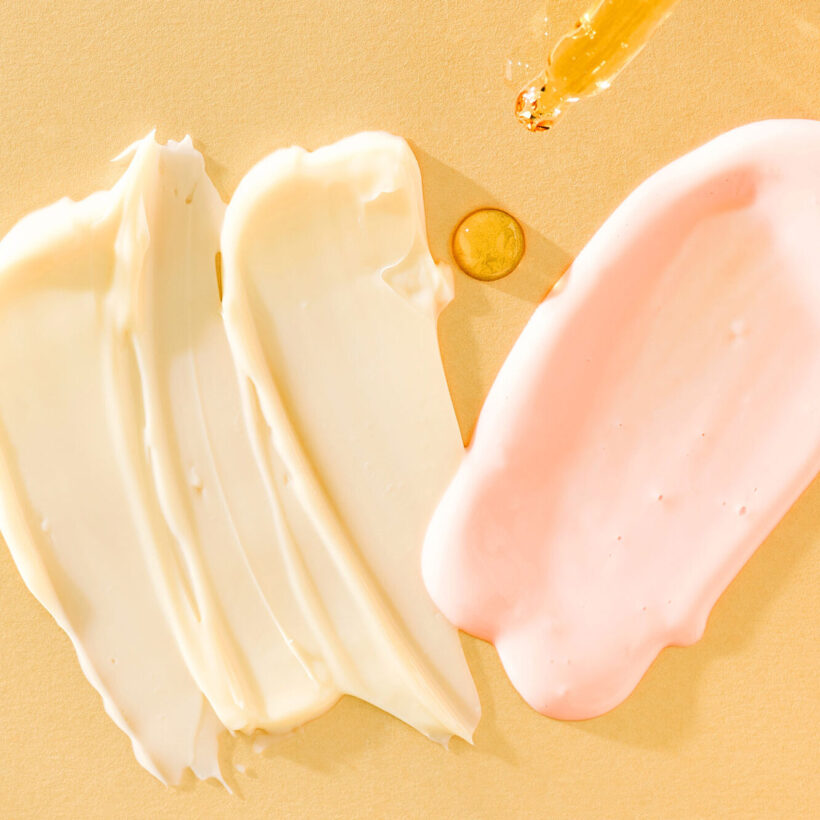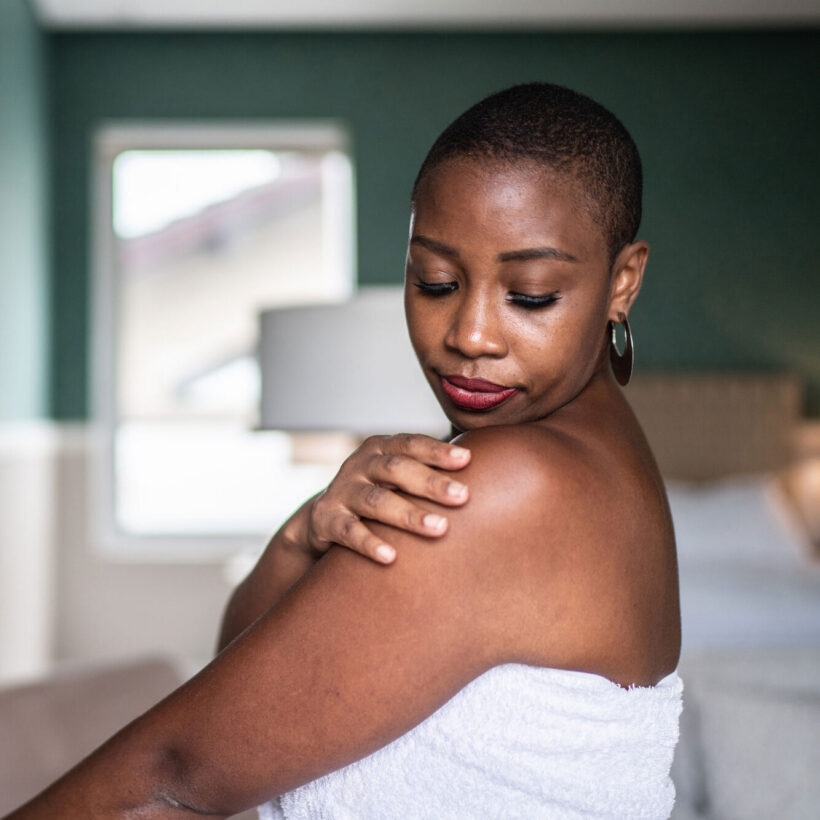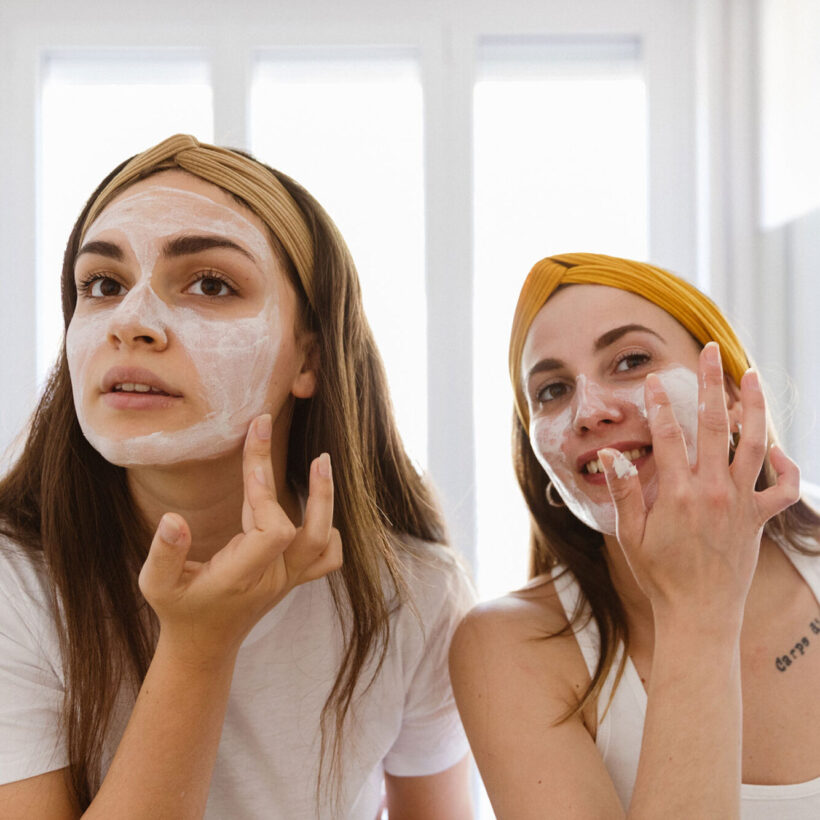Black is beautiful. While we’re finally seeing an improvement of diversity across the beauty industry, people of color still face unique challenges when trying to achieve healthy skin and hair. Conventionally, many beauty brands often overlooked the needs of the Black community, which requires a level of experience and familiarity. Cosmetic chemist Ni’Kita Wilson not only has studied product development for years, but she understands first-hand the skincare issues that people of color face. Ahead, she zeroes in on a few Black beauty lessons that she’s learned along the way that make the journey to finding skin and hair confidence a little easier.
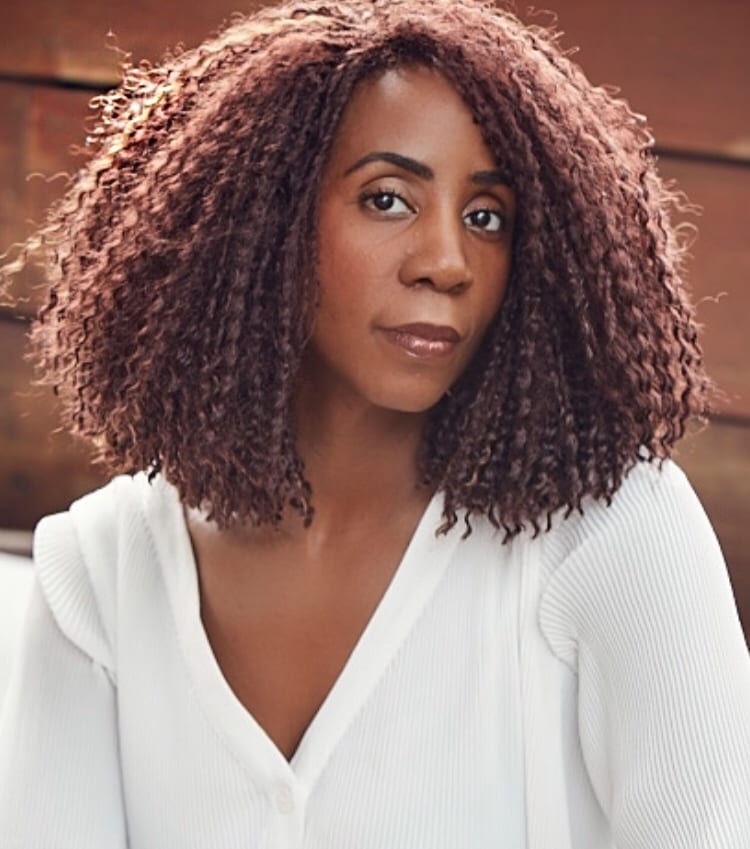
Think about your skin goals
There are many brands and products that are marketed to melanin-rich complexions, but it’s a misconception that certain skincare products are just for people of color. “It’s more of a difference in skin priorities. For the most part, people of color are more concerned with pigmentation, moles or skin tags, and texture. As we age, it’s less about wrinkles and more about sagging skin and being able to control the level of elasticity and firmness to keep skin tight,” says Wilson.
Be extra careful with active ingredients
This doesn’t mean that if you have dark skin, you need to avoid certain ingredients. However, “people of color must be more cautious when trying out different products like chemical peels or products with high levels of aggressive active ingredients. If the skin gets inflamed, there’s a higher likelihood of hyperpigmentation,” she says. “It’s best to gradually incorporate stronger ingredients into a routine to avoid traumatizing the skin. If I were to use an acid for the first time, I would start off with something that’s a lower percentage and use it maybe once a week or twice a week to build a tolerance. When I can use it without any negative reactions then I can go on to something a little stronger repeating the incorporation process to avoid unnecessary trauma to the skin.” It’s sage advice for anyone with sensitive skin, too.
Black don’t crack

There’s the common saying that “Black don’t crack,” meaning it won’t wrinkle. There is some truth to it, but perhaps the thought is incomplete: “More accurately, I feel like it’s ‘Black don’t crack… as early as other ethnicities’ or as I like to say, ‘Black don’t crack, but it sure does sag.’ Eumelanin (the brownish/black pigment in Black skin) isn’t aged by the sun causing the same fine lines and premature wrinkles. Signs of aging on people of color start out with dark spots, moles and skin tags, and sagging. Those nasolabial folds (the indentations on the sides of your mouth) can go deep as we age and you’ll notice the fat pads on the cheeks slowly disappear,” she says.
But it does still require sunscreen
It’s easy to see why people with darker skin have a long history of avoiding SPF: “Even though the mortality rate is higher, people with darker skin have lower incidences of skin cancer, therefore wearing sunscreen every day is not going to be a driving force for them. Plus, many sunscreens are not well-suited for darker skin types. The idea of slathering on a thick coat of lotion or cream that’s going to leave a white or bluish cast on the skin is a sure deterrent,” she says.
“However, the major thing that I’ve learned about working with hyperpigmentation is the importance of wearing sunscreen every day. If people of color are spending money on products to reduce dark spots, even their skin tone, brighten, firm, and tighten the skin, then they are just tossing money out of the window if sunscreen is not included in their morning regimen. UV protection in sunscreens prevents the UV rays from causing additional melanin to be created therefore making that dark spot appear even darker. Sunscreen is your number one weapon that can be used every day. It’s relatively inexpensive and it is not only great for hyperpigmentation but also preserves your skin long term,” says Wilson.
Black skin doesn’t necessarily need more exfoliation
Some people think that since darker skin has skin cells that are more densely packed, it can handle more frequent exfoliation. “This type of generalization could be a bit dangerous because everyone’s skin is different. Exfoliation products that I use without any issues could irritate my daughter’s skin. My skin is far less sensitive than my sister’s skin so while I’m exfoliating two to three days a week and my skin responds well, her skin responds better with exfoliation once a week. While tape stripping studies (a dermatological method for showing the efficacy of a formula) show that people of color are supposed to tolerate more exfoliation, I think it’s more important to consider what your unique skin can and can’t tolerate.”
Our relationship with hair can be wonderful — and complicated
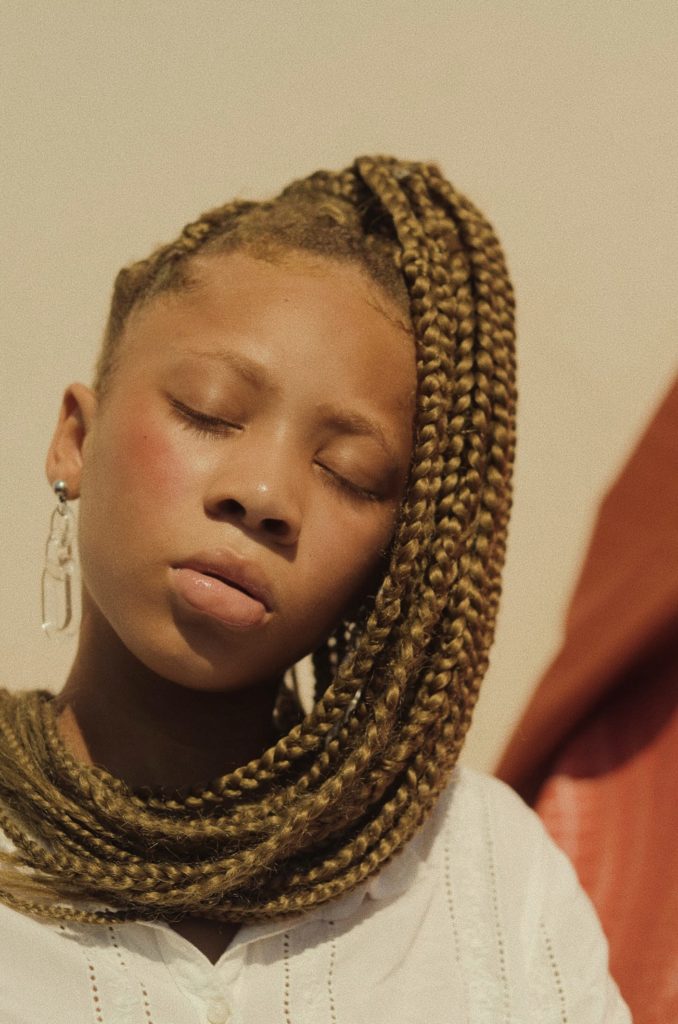
Wilson suggests to build a relationship with your hair like you would with your skin: “Hair can cause you to feel incredible. When your hair is healthy and can be styled nicely then you feel fabulous about yourself. On the flip side, if you are having a bad hair day and it is just not cooperating, then it can easily impact how you see yourself. This can be a real issue and shouldn’t be taken lightly just because someone else may not understand. Knowing your hair type can help guide product selection and help you connect with other people with similar hair types to get ideas on how to maintain your own hair. Again it’s personal because even the same hair types can have different porosities and levels of damage. You may have a different skill set that needs to be taken into account when watching instructional videos on Youtube or TikTok. Take these tips and use them as starting points to figure out what works best for your hair based on the condition that it’s in right now. Know your hair like you know your skin!” she says.
“For me, steam is everything. It really helps to infuse moisture into the strands then is locked in for long term moisture. Hair that is not properly moisturized is frizzy and damage-prone. Dry hair is difficult to manage and style leading to frustration and, in some cases, low self-esteem (yes for some people it can get that deep).”
Scalp care is a part of skincare
Scalp care has seen a bit of a renaissance lately for a good reason. “I am so happy to see that the scalp is getting the attention that it deserves. I always use the analogy that the scalp is like a garden. Your crop is only as good as the soil that is grown in. The farmer has to fertilize the soil and balance the nutrients to get the best crop. It is the same for the hair! The strands of hair can only be as strong and as healthy as the tissue surrounding it nourishing the follicles. With all of the products that we use like dry shampoos, texturizing sprays, lift and volume products; all of these things are going directly on your scalp and you really want to make sure that you are properly caring for it just as you would your facial skin,” says Wilson.
Beauty is personal
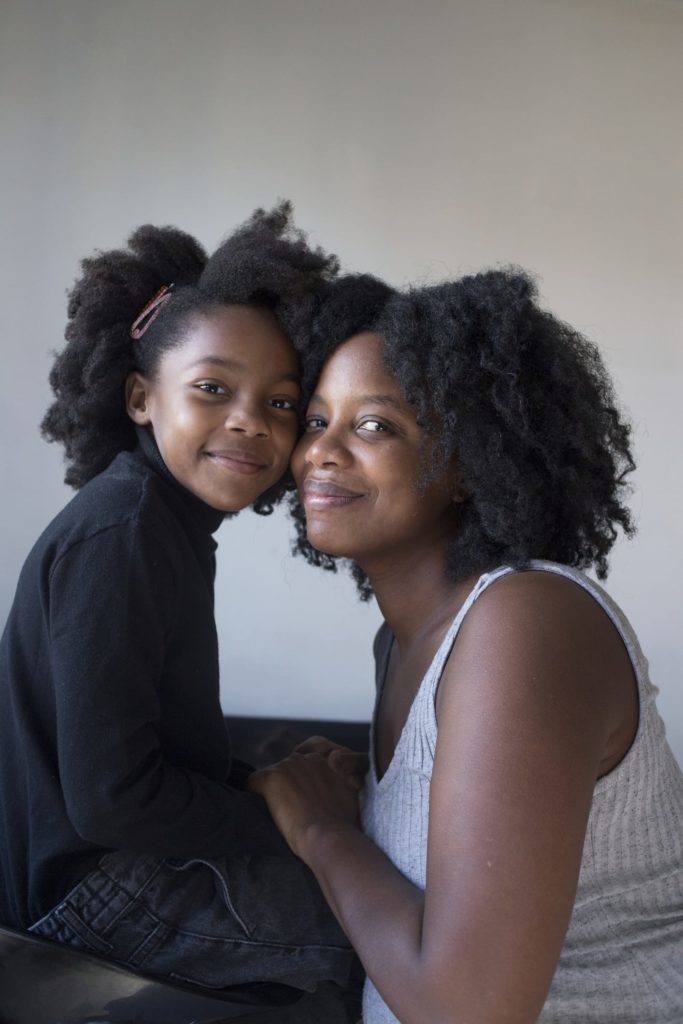
The hard truth is that finding the right skincare (or hair) routine for you will take some trial and error. “Influencers and beauty experts can introduce us to new products, teach us how to use products, and inspire us to be creative. What they can’t tell you is what you need for your skin at this moment. That’s why I say that skincare is personal. The only way to get the best from skincare products is to enter a relationship with your skin and take the time to really get to know it,” she says.
“Being in the industry developing products for just about every skin type and condition for as long as I have, it wasn’t until I started paying attention to how my skin responded to different triggers that things turned around for me. Think about it, if you are in a relationship with someone then you learn about that person; you understand what makes them tick. You learn what makes them smile and what buttons to push to get a rise out of them. It’s the same for your skin. If you treat your skin like you’re in a relationship and spend more time with it then you’ll learn when what makes your skin angry and what it responds to.”




